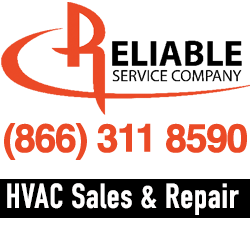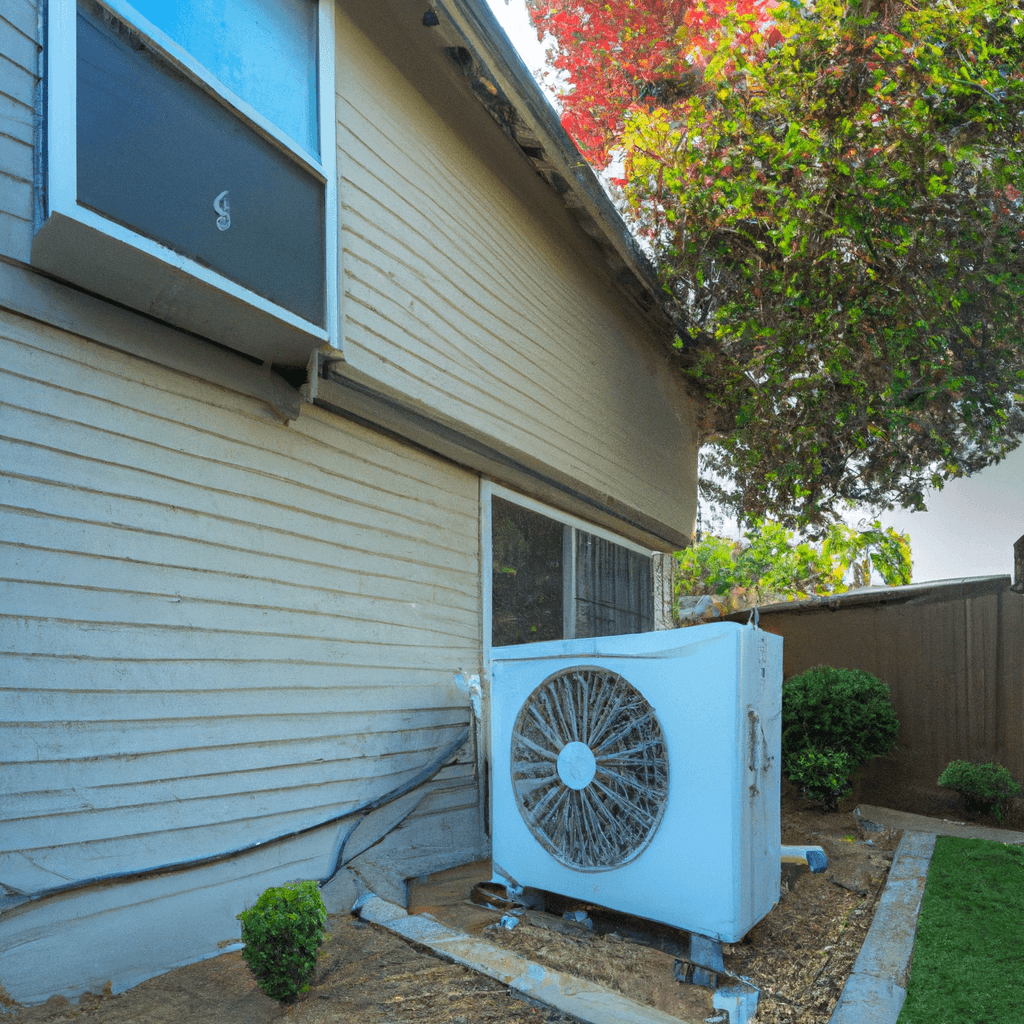Residential Central AC Total Cooling Capacity
When it comes to air conditioning, the total cooling capacity of a residential central air conditioning system is a very important factor to consider. It is the primary specification that must be taken into account when selecting and purchasing an AC system for a home. Understanding the total cooling capacity is essential for ensuring a properly-sized system that meets the needs of the homeowner and their household requirements.
How to Calculate the Necessary Total Central AC Cooling Capacity
Calculating the necessary total cooling capacity of a central air conditioning system is a task that should be completed by a trained and certified professional in the HVAC industry. The cooling capacity of the AC unit is determined by the size and condition of your home and is based on the air volume that an AC system needs to fully circulate and cool. This involves taking into account the size of each room, the number of doors and windows in the house, what type of insulation has been installed and more.
The cooling capacity must also reflect the climate variations in your area, as well as the amount of direct sunlight and wind exposure the home receives. So while a basic calculation of the size of your residence can provide an estimate of the total cooling capacity, a professional can assess the existing conditions of your home to determine the most accurate figure.
Installing a Residential Central AC System of the Proper Size
Once the total cooling capacity has been calculated, an appropriately-sized AC unit should be purchased and installed. When selecting a system it’s important to consider the type of air conditioner that best fits the size and needs of your residence. For example, a split-system air conditioner is better suited for a larger home, whereas a ductless mini-split air conditioner is better for smaller homes and single rooms.
A number of other energy efficiency factors should also be taken into account when selecting an unit, such as SEER (Seasonal Energy Efficiency Ratio) ratings and the availability of ENERGY STAR® certified models. Once the unit has been purchased, it should be installed by a professional and certified HVAC technician to ensure it is reliable and running as efficiently as possible.
If you find yourself needing either the help of a professional HVAC technician to calculate the total cooling capacity of your home or an experienced installer to install a central AC system of the correct size and make, contact the knowledgeable and friendly staff at Local Reliable Appliance Repair at (866) 311-8590. They will be more than happy to provide you with all the advice, services, and support you need to complete the task properly.



Tips to Ensure Optimal Central AC Capacity
Central air conditioning (AC) is an important component of any home. In order to ensure optimal performance of your AC system, regular preventive maintenance and capacity checks are essential. Here are some key recommendations from manufacturers, local appliance companies, and HVAC technicians regarding preventive action to avoid Central AC capacity issues:
Upgrade Components
When components of the central AC system reach the end of their usable life, they should be upgraded or replaced to ensure the system operates with the highest level of efficiency and performance. Modern, energy-efficient components can reduce energy consumption and ensure your system runs without any capacity-related issues.
Clean and Replace Filters
Regularly cleaning or replacing air filters is one of the most important preventive steps to ensure your central AC continues to run at its optimal capacity. Dirty air filters significantly reduce air flow and reduce the system’s ability to maintain the desired temperature set-point. The American Society of Heating, Refrigerating and Air-Conditioning Engineers (ASHRAE) recommends that filters should be replaced at least once a month.
Check and Refill Refrigerant
Low levels of refrigerant can adversely affect the performance of the system. An HVAC technician should be called in to check and refill the refrigerant whenever necessary.
Clean Coils and Exterior Unit
The condenser and evaporator coils located inside the AC should be inspected and cleaned regularly. This will ensure better heat transfer and enhance performance. Additionally, the exterior cabinet should be periodically inspected for rust and any other damage.
Maintain Ducts and Vents
Leaks in the ductwork can drastically reduce AC performance. Professional duct-tightening is recommended by manufacturers and HVAC experts. Additionally, it is important to inspect and clean the supply and return vents and grills to ensure a continuous, un-interrupted air flow.
Adjust and Calibrate Thermostats and Controls
Accurate thermostat setting and regular calibration are essential to optimize AC performance. Regular maintenance by a professional technician is recommended to maintain the desired set-point and prevent any capacity-related issues.
Preventive Maintenance
Routine preventive maintenance is essential to ensure the optimal performance of any air conditioning system. A licensed technician should perform regular system inspections, including cleaning and lubricating components, checking fan motors, inspecting and adjusting thermostats, and inspecting and testing pressure switches.
By following the above recommendations, you can rest assured that your central AC system will operate smoothly, effectively, and at its optimal capacity. If you need assistance with any of these tasks, it is important to call a local HVAC professional. A reliable air conditioning and heating service can provide experienced technicians and provide quality service to ensure your system runs at its best.
Repair Cost for Central AC Capacity Issue
Average repair costs for Central AC capacity issues can vary widely, depending on the complexity of the issue and the cost of materials. To get the most accurate repair costs, it is recommended to seek help from a local air conditioning & heating service provider.
For simpler repairs, such as replacing a capacitor or compressor, the minimum repair cost can range from approximately $450 to $750, an increase of about 20% from previous years. More complex repairs might include replacing a thermostat or other more intricate components and can reach up to around $1,500.
For installations, depending on the complexity and type of unit being installed, the minimum cost can range from $2,500 to $3,000, with a more complex installation reaching up to around $4,500.
The following is a more detailed itemized list of parts that may be required in order to perform a repair on a Central AC capacity issue:
– one or more capacitors
– a compressor
– a thermostat
– wiring
– piping and tubing
– insulation
– a filter and/or air pads
– a condensate line
For a more accurate cost estimation, it is best to contact a trustworthy local air conditioning & heating service provider.
By getting professional help, you will receive the best advice and a detailed estimate on what it might cost to repair or install your Central AC capacity issue.
Central AC Capacity: A Reason to Choose Reliable Air Conditioning & Heating
When selecting an HVAC service, consider Reliable Air Conditioning & Heating in California. As a family-owned company, they not only provide same-day service for heating and AC repairs and installation, but also offer fair and affordable pricing and a 90-day warranty on all their repairs. With highly trained technicians with a minimum of 5 years experience, Reliable Air Conditioning & Heating is the perfect fit for taking care of Central AC capacity concerns.
Reliable Air Conditioning & Heating is a dedicated team of experts who understand and provide excellent customer service. Taking charge of your Central AC capacity requirements is only part of what Reliable provides. Their technicians are licensed and insured, making all of their services worry-free and reliable. Their technicians will be sure to inspect your unit thoroughly and walk you through any work they may do so that you are fully aware of the details.
When you choose Reliable Air Conditioning & Heating, you can be sure you are receiving top quality service and support. Without double-checking the capacity of your Central AC unit, your cooled home can turn uncomfortable in the summer heat. The technicians at Reliable Air Conditioning & Heating will evaluate the capacity of your unit to make sure it’s running at its optimal efficiency. Their specialists will guarantee that you have the right size and capacity of your unit, regardless of if you have an existing central air system or are in the process of installing a new one.
When looking for HVAC specialists and appraising Central Air conditioner capacity needs, Reliable Air Conditioning & Heating is the go-to company in California. With friendly technicians, exceptional customer service, and a reliable warranty, you can rest assured your system will be serviced and running optimally in no time. They understand that it is essential for your comfort and peace of mind to have a reliable HVAC system, and are here to help you with all your needs. Having the correct capacity in your central air unit will make sure your home stays comfortable all summer long.
FAQ about Residential Central AC Total Cooling Capacity and Central AC Capacity
What is Residential Central AC Total Cooling Capacity?
Residential Central AC Total Cooling Capacity is the total energy that an air conditioner can remove from a given space in an hour. It is typically expressed in British Thermal Units (BTUs) per hour.
How is Central AC capacity measured?
Central AC capacity is measured in tons of air-conditioning. One ton of air-conditioning is equivalent to 12,000 BTUs of cooling power. This capacity is determined by the overall size of the space where the central AC is installed.
What factors should be considered when calculating cooling capacity?
When calculating cooling capacity for a space, it’s important to take into account the size of the area, its layout, the amount of insulation, the type of building materials used, and the outdoor climate.
How is the correct Central AC capacity calculated?
It is best to consult a qualified technician who can assess the space and determine the correct Central AC capacity needed. The technician will also inspect existing equipment and evaluate the installation of any new equipment that may be required.
If you have any questions about Residential Central AC Total Cooling Capacity and Central AC Capacity, call Local Reliable Appliance Repair at (866) 311-8590 for expert advice.

